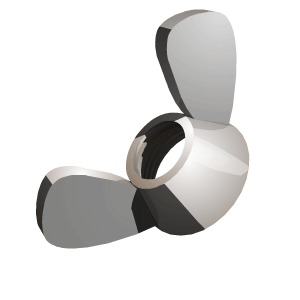Today I will practice detachment by letting go of things I can’t control. Detachment means standing back and looking at a situation without having a hand in it. Watching fireworks is practicing detachment. Flying a kite is not. Allowing friends the freedom to have their own opinions is practicing detachment. Feeling compelled to change their minds is not. Watching a child create her own drawing is practicing detachment. Holding her hand while she draws is not. I can’t control other people, their actions, or their beliefs by forcing them to act or believe as I do. Detachment helps me see the big picture, since I can see things more clearly from a distance. Today, and from now on, I will practice taking care of myself by detaching from people or situations that aren’t good for me. Today I will pay close attention to when I am trying to force the issue, and I’ll remember that my time would be better spent leaving it alone.
Time to Break Free by Judith R. Smith ©1999One day, my son brought a gerbil home to live with us. We put it in a cage. Some time later, the gerbil escaped. For the next six months, the animal ran frightened and wild through the house. So did we ­chasing it.
“There it is. Get it!” we’d scream, each time someone spotted the gerbil. I, or my son, would throw down whatever we were working on, race across the house, and lunge at the animal hoping to catch it.
I worried about it, even when we didn’t see it. “This isn’t right,” I’d think. “I can’t have a gerbil running loose in the house. We’ve got to catch it. We’ve got to do something.”
A small animal, the size of a mouse had the entire household in a tizzy.
One day, while sitting in the living room, I watched the animal scurry across the hallway. In a frenzy, I started to lunge at it, as I usually did, then I stopped myself.
No, I said. I’m all done. If that animal wants to live in the nooks and crannies of this house, I’m going to let it. I’m done worrying about it. I’m done chasing it. It’s an irregular circumstance, but that’s just the way it’s going to have to be.
I let the gerbil run past without reacting. I felt slightly uncomfortable with my new reaction ­not reacting ­but I stuck to it anyway.
I got more comfortable with my new reaction ­not reacting. Before long, I became downright peaceful with the situation. I had stopped fighting the gerbil. One afternoon, only weeks after I started practicing my new attitude, the gerbil ran by me, as it had so many times, and I barely glanced at it. The animal stopped in its tracks, turned around, and looked at me. I started to lunge at it. It started to run away. I relaxed.
“Fine,” I said. “Do what you want.” And I meant it.
One hour later, the gerbil came and stood by me, and waited. I gently picked it up and placed it in its cage, where it has lived happily ever since. The moral of the story? Don’t lunge at the gerbil. He’s already frightened, and chasing him just scares him more and makes us crazy.
Detachment works.
Today, I will be comfortable with my new reaction — not reacting. I will feel at peace.
The Language of Letting Go by Melody Beattie ©1990